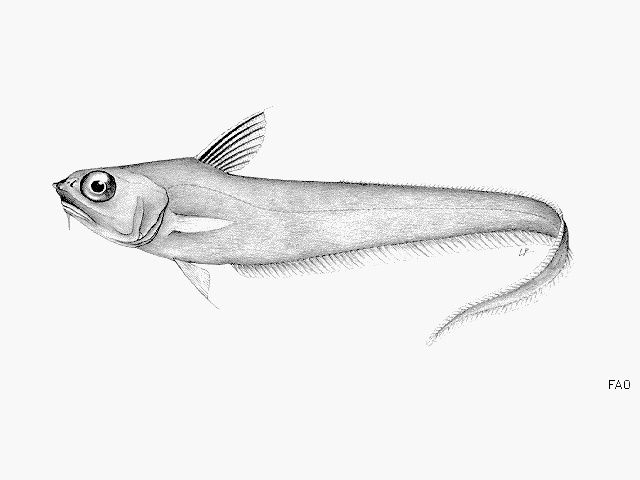| Macrouridae (Grenadiers or rattails) |
| 48.2 cm TL (male/unsexed) |
|
bathydemersal; marine; depth range 540 - 2070 m, non-migratory |
| Southwest Pacific: New Zealand, Tasman Sea, south of Tasmania, southeast Australia (Victoria), and possibly also across the Indian Ocean (Ref. 1371). A possible subspecies, Coryphaenoides serrulatus oceanus from the Indian Ocean (Walters Shoals south of Madagascar to Broken Ridge in 870-1,255 m) is recognized by Iwamoto and Shcherbachev (Ref. 10993). |
|
Dorsal spines (total): 2-2; Anal spines: 0-0. Head of moderate-size, its underside scaled; sensory pores on head prominent; eyes relatively large; snout blunt, its tip and lateral angles with large, stout tubercular scutes. Scales adherent, densely covered with distinctly shield-shaped imbricate spinules. Pyloric caeca short, directed anteriorly, 10 to 12; retia mirabilia 6. Overall color is brownish gray; fins dusky; oral and branchial cavities blackish. |
| A benthic species (Ref. 75154) recorded from the continental slope (Ref. 9563, 75154). |
|
Not Evaluated (N.E.) Ref. (130435)
|
| harmless |
Source and more info: www.fishbase.org. For personal, classroom, and other internal use only. Not for publication.

